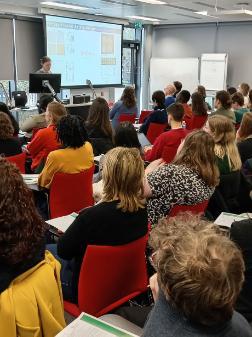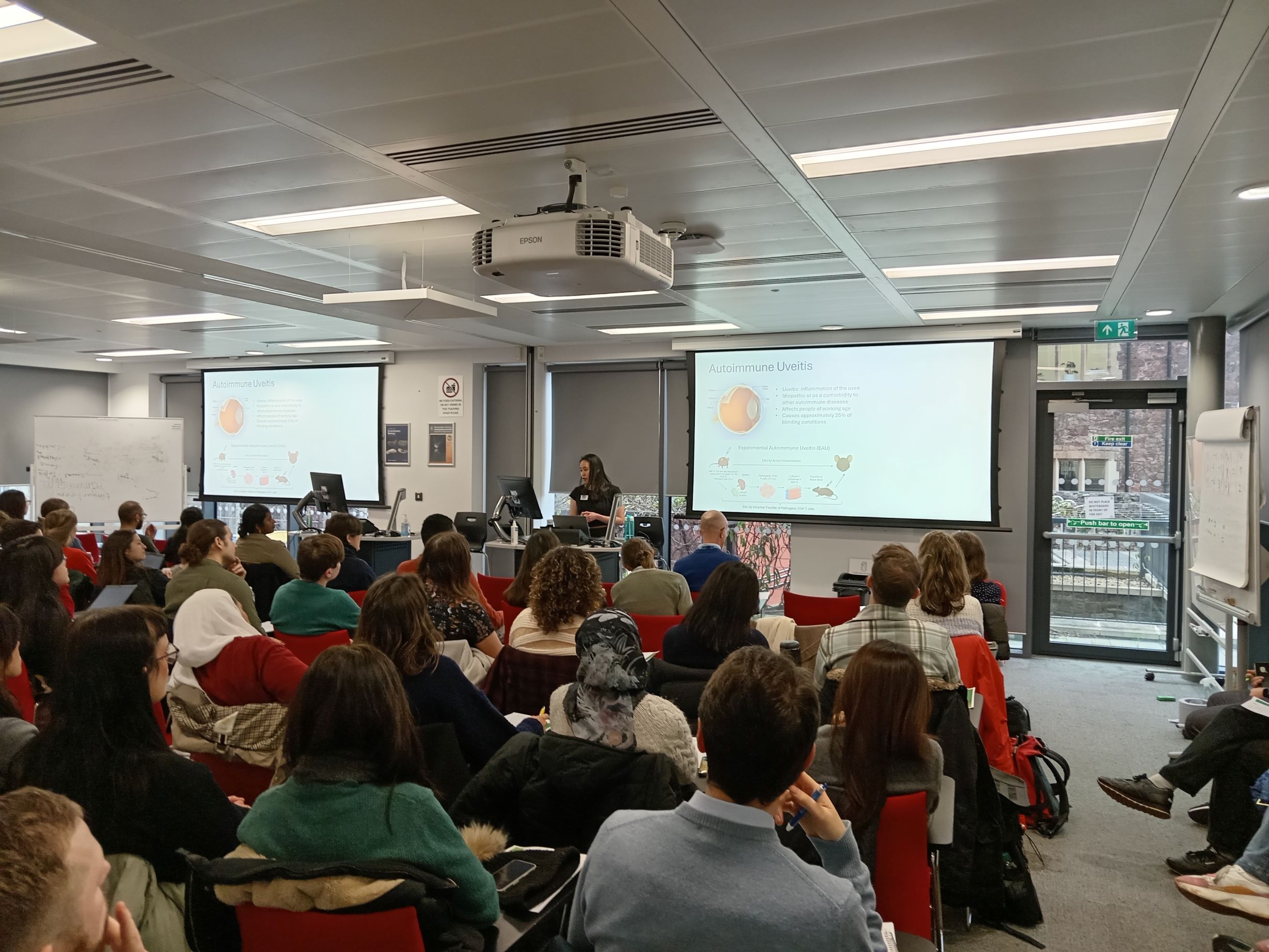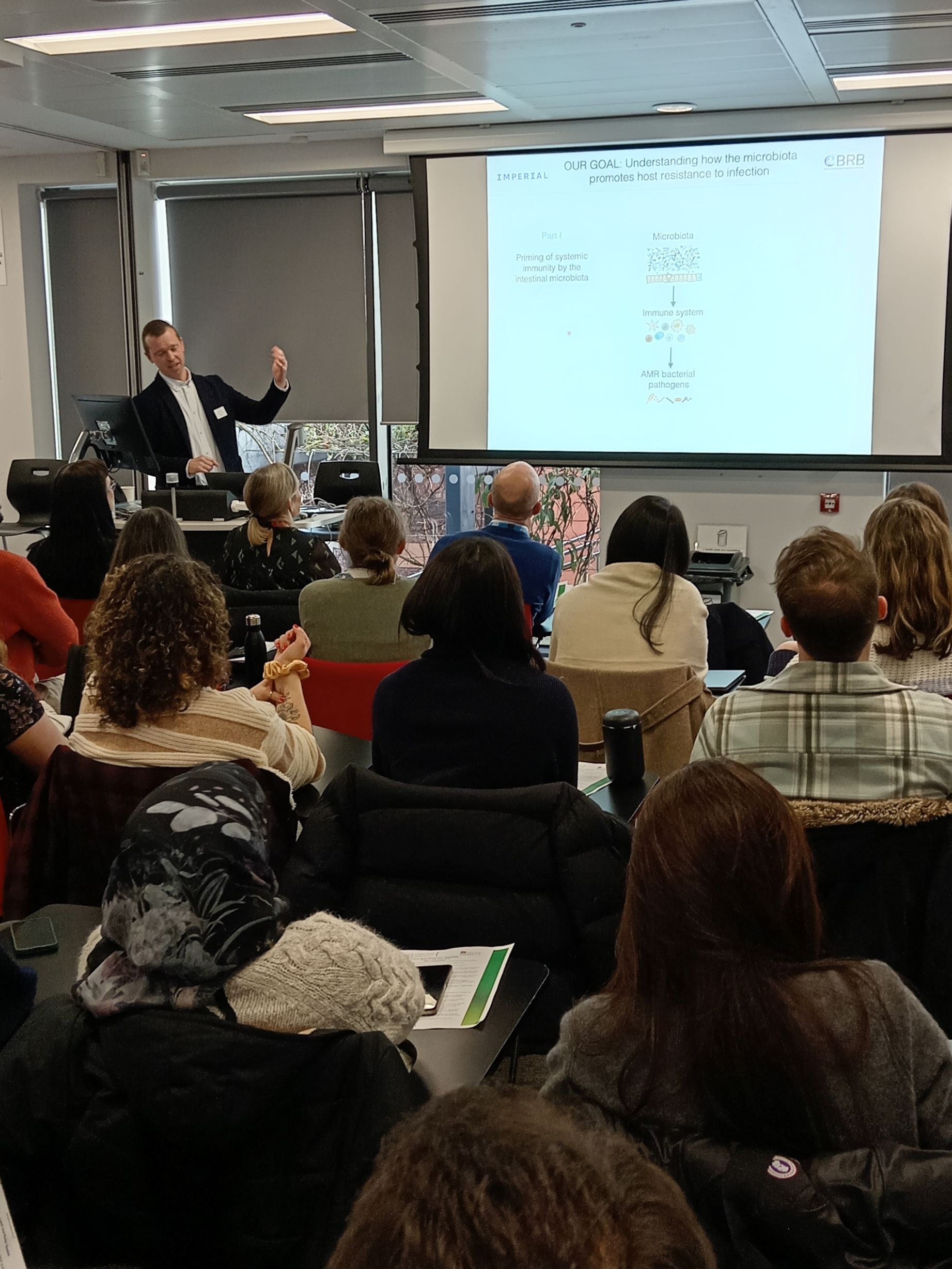Over 120 people registered to take part in this in-person event organised by the Infection and Immunity Research Network, which is supported by the University of Bristol's Elizabeth Blackwell Institute for Health Research. The programme offered a series of oral and poster presentations from Early Career Researchers based on an open and competitive abstract submission process, and comprised 8 oral and 24 poster presentations delivered by up and coming research stars. We also welcomed two keynote speakers.
What is an early career researcher (ECR)?
We have no set definition for an ECR; we welcomed submissions from undergraduates, postgraduates, postdocs, technicians, recently appointed lecturers who are starting their academic careers, clinicians embarking on a research career, and anyone who felt they were starting a new phase in their career journey. The speakers came from a variety of backgrounds and career stages.
Keynotes
- Kirsten Scott, Clinical Research Fellow, John van Geest Centre for Brain Repair, University of Cambridge and Medical Director of Neurosciences at AstraZeneca. Kirsten's work looks at inflammation and the role of B lymphocytes in Parkinson's disease.
- Thomas Clarke, Senior Lecturer, Department of Infectious Disease, Imperial College London. Tom's research focusses on the impact of the gut microbiota on immune function and susceptibility to infection.

Keynote Kirsten Scott, University of Cambridge
Prizes
- 1st place oral: Lily Watson, Core Medical Trainee Doctor, Bristol Medical School, University of Bristol: Pamidronate-induced clinical remission in chronic non-bacterial osteomyelitis is associated with reduced gamma-delta (γδ) TCR expression
- 2nd place oral: Liya Mathew, Research Associate, School of Cellular and Molecular Medicine, University of Bristol: Phagocyte responses to gut-derived C. albicans are modified in inflammatory bowel disease
- 1st place poster: Serena Bettoni, Marie Curie Research Fellow, School of Cellular and Molecular Medicine, University of Bristol: C4b-Binding Protein and Factor H attenuate NLRP3 Inflammasome-mediated signalling response during Group A Streptococci infection in human cells
- 2nd place poster (tie):
- Shichun Gu, PhD student, School of Cellular and Molecular Medicine, University of Bristol: How much tolerance does SARS-COV-2 have for Open Reading Frame 10?
- Rahma Fitri Hayati, PhD student, School of Cellular and Molecular Medicine, University of Bristol: Exploring the mechanism underlying Genetic Polymorphism in MICB and KLRK 1 gene associated with Severe Dengue
- 3rd place poster (tie):
- Tom Gerrard, PhD student, School of Cellular and Molecular Medicine, University of Bristol: Phase variation of Moraxella catarrhalis adhesins: Impact on CEACAM binding and biofilm formation
- Joe Steventon, PhD Student, School of Cellular and Molecular Medicine, University of Bristol: Development of a rapid molecular test to complement culture-based bacteraemia diagnostics
- Isobel Webb, Postdoctoral Research Associate, School of Cellular and Molecular Medicine, University of Bristol: Analysis of the localisation and interaction partners of a FLAG tagged SARS-CoV-2 membrane protein in the context of viral infection
1st place got £50, 2nd £30 and 3rd £20 each.



